Bestselling 40K author Dan Abnett on writing Darktide
The author of the Gaunt's Ghosts and Eisenhorn books explains why, in the grimmest sci-fi setting around, human characters matter.
Once upon a time the only way to get into Warhammer 40,000 was by collecting and painting an army of miniatures, buying all the rulebooks, and reading White Dwarf magazine every month. As Games Workshop branched out into other media that changed, and so did the audience for 40K.
Not everyone is comfortable walking into a gaming club that smells like raw boy, or a store where parents ditch their kids while they do the grocery shopping. The 40K books brought in plenty of new blood, and especially Dan Abnett's novels. Abnett wrote about morally compromised Inquisitor detectives and soldiers bonding behind the razorwire, which is why he's a perfect choice to join Fatshark as co-writer on Warhammer 40,000: Darktide, a co-op game that casts players as agents of the Inquisition—regular grunts sent to investigate dark cult-related goings-on.
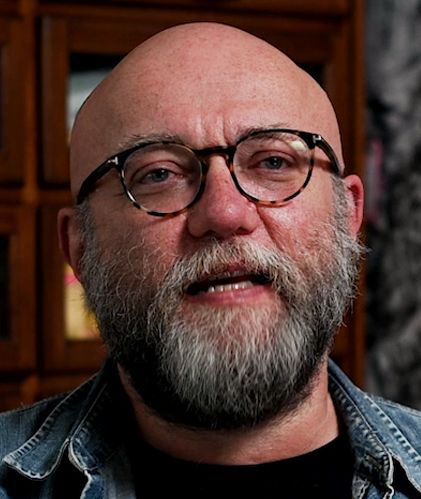
As well as writing many of the best Warhammer 40,000 books, Dan Abnett has written comics like Guardians of the Galaxy and Sinister Dexter, as well as co-writing the videogame Alien: Isolation, and writing all the orcs in Shadow of Mordor.
"I love the universe as a whole, obviously," Abnett says. "I've spent a lot of time there, so I love all the stuff to do with it. Obviously there are iconic elements like Space Marines that represent 40K in a nutshell, but I've always gravitated towards human characters because they seem to me to give the best place for a reader, or a player in this case, to relate to. The human condition and that kind of stuff. Just a regular person who's not augmented or empowered by Astartes gifts or anything like that. It's something to identify with and to relate to, but also a great place from which to see the universe, because you are the smallest thing in it."
Anders De Geer, Fatshark's game director, is one of those fans of Abnett's books. He agrees that depicting the setting from the bottom, seeing the stars from the gutter, is a valuable approach. "We wanted to show 40K from an angle that we love," he says, "and I think that Dan's books have at least helped me personally to really understand 40K and really get the perspective of everything."
It's a setting where humankind has formed an Imperium of over a million worlds, a society so vast that it's hard to hang onto a sense of individual lives mattering. It's also dark to the point of absurdity. Chaos gods from another reality hunger for mortal souls, and they'll be lucky to get them before aliens who consume biological matter on a planetary scale eat the entire Milky Way. It combines enormousness with enormity.
"There comes a point where it's so mind-bogglingly bleak," says Abnett. "What is it Adams says? 'It's a long way down the road to the shop, but that's just peanuts to space.' It's so big that there is a danger of overkill after a while, where you're going, 'I'm overwhelmed by the sheer scale.'
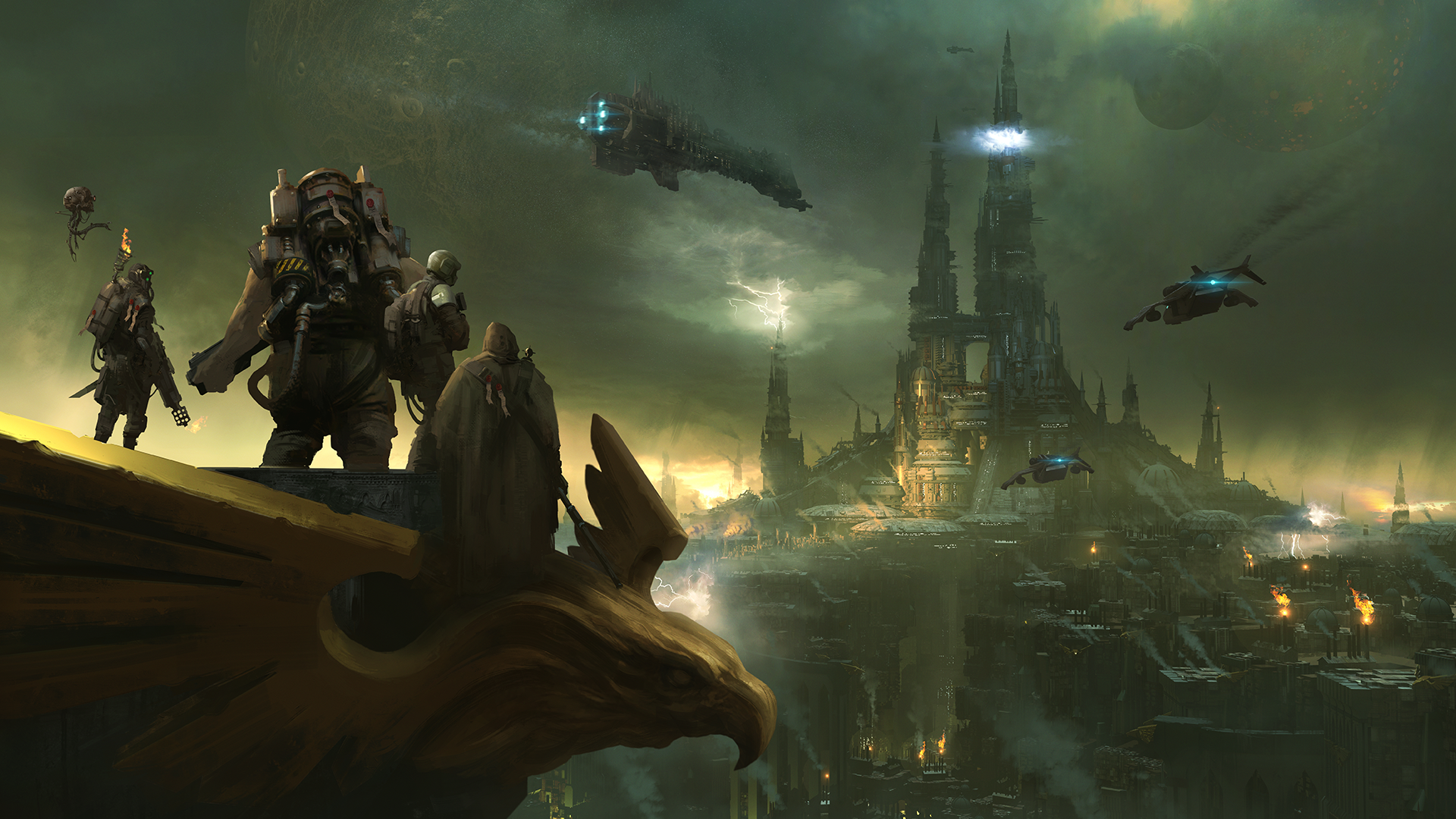
"I always found that very useful in the novels, to have that human anchor point, because you could reduce the scale, or at least you could sympathize with the feelings of the people caught within that. I think that helps with the culture shock. It means you can sustain a sense of wonder and engagement with this place longer than you would do if it was just overwhelmingly operatic and epic every second of the way through."
The biggest gaming news, reviews and hardware deals
Keep up to date with the most important stories and the best deals, as picked by the PC Gamer team.
To get across the sense of the player as an underdog, we'll be starting at the bottom of the hierarchy in an Inquisitor's warband.
"You start the game as sort of a prisoner," Abnett says, "an unwilling recruit into this life of serving the Inquisitor. You've got everything to prove, and I suppose everything to lose. So although you don't really have a choice [whether] you help them or you don't, it's a matter of establishing your own... what's the word? Value, I suppose, in this team of very, very tough professionals who've seen it all before, done it all before, and are kind of using you as cannon fodder."
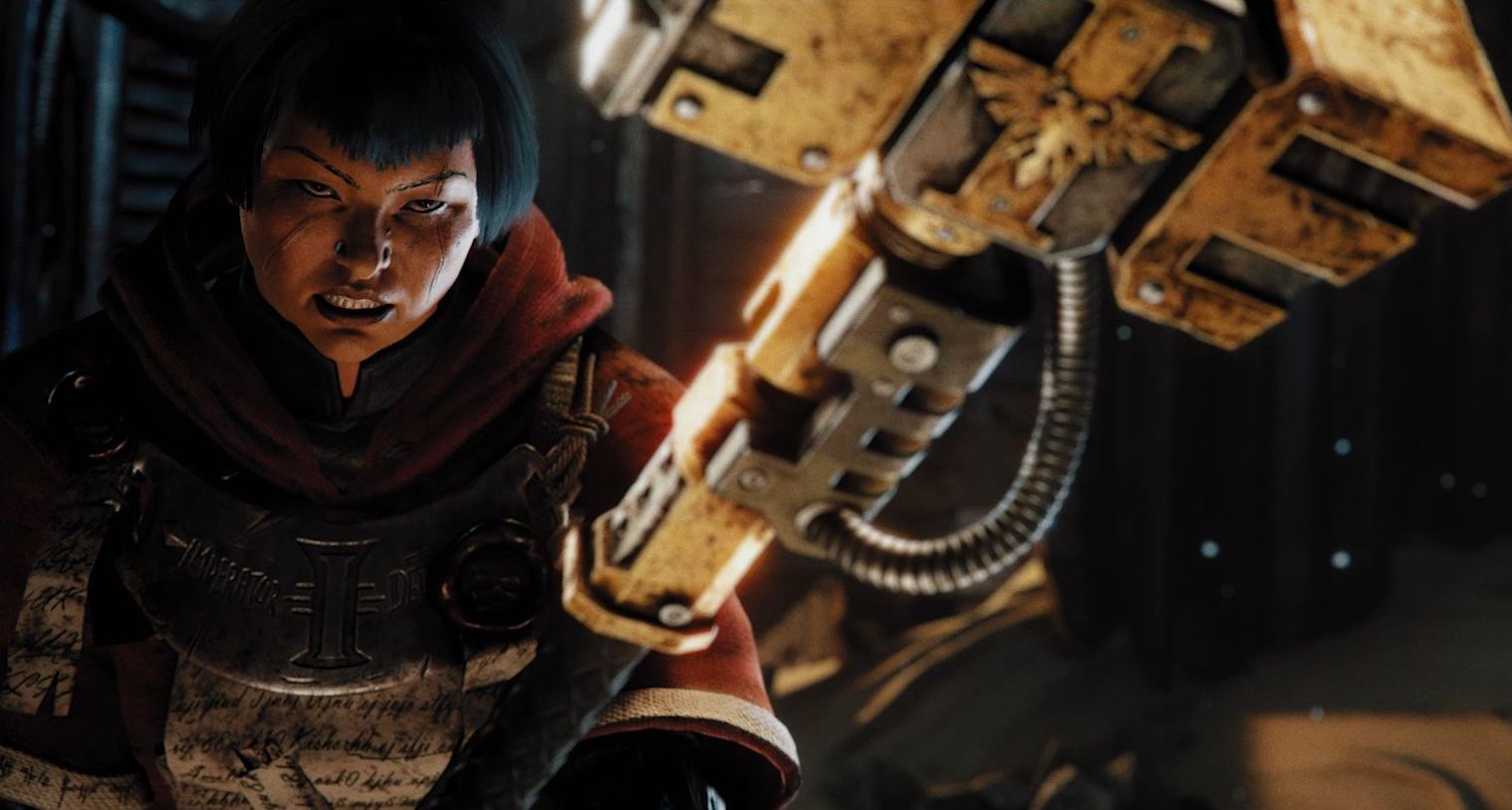
Though we've seen a cast of playable characters in Darktide's trailer, including a hammer-wielding religious zealot, a gigantic ogryn, and a couple of soldiers (one who looks like a Kasrkin stormtrooper), Fatshark isn't ready to talk about who they are just yet.
What they are ready to talk about is where they hang out.
Darktide's hub will be an Inquisitor's starship, monitoring your progress through the hive city of Tertium from orbit. "You've got a place that you can talk to the other members of the team and the other characters," says Abnett, "the important members of the warband. And also improve yourself and get new kit and get briefed and all those sorts of things that you would expect to be able to do in a game. We've put some work into making that cool as well, to give it the sort of personality of things that you've seen in books like the Eisenhorn books."

Before serving as game director for Darktide, Anders De Geer filled the same role on both Vermintide and Vermintide 2. He was creative director on games including Bloodports.TV, War of the Vikings, and War of the Roses: Kingmaker.
If you've ever asked a group of players in a game like Diablo to wait while you open up the inventory to decide whether to change your hat, then looked up to see they've all moved on, you'll understand the value of making that a location rather than a menu. The between-mission hub is important in co-op games because it creates space for downtime, for those moments where the adrenaline of a mission can cool off and you can reshuffle your loadout of gear and abilities. Fatshark knows this well, having crafted two such hubs for the Vermintide games.
"The starship is much bigger in the sense of player count than the Vermintide hub," De Geer says. "It's more of an actual hub with NPCs and people to interact with, but also other players of course."
I ask him to clarify: Will Darktide's hub be a shared space with players who aren't grouped with us? "Other players as well," he says. "I mean the community—getting a sense of the community and getting a chance to interact with players that are not in your team."
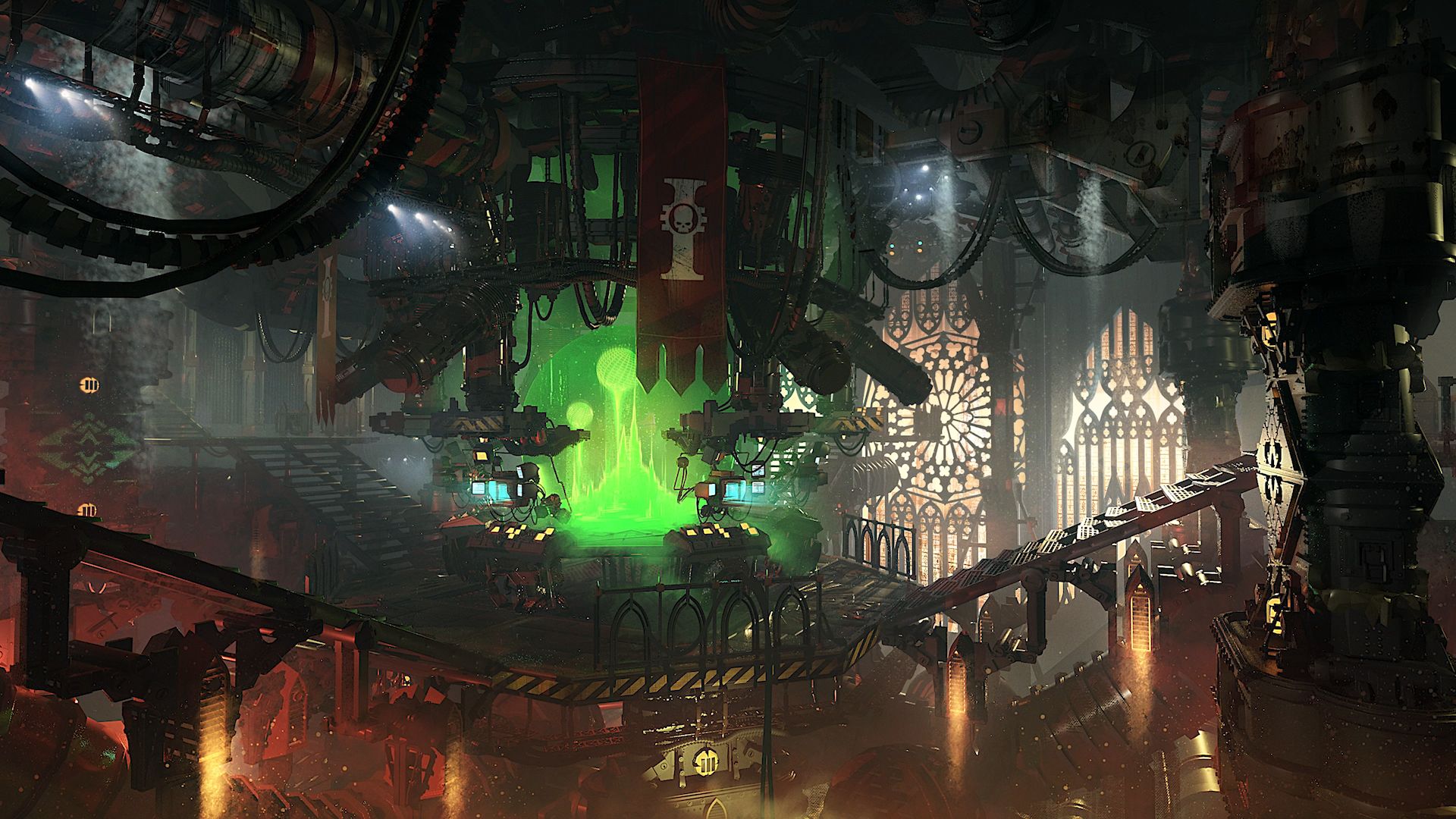
The final thing players do in the hub is choose their next mission. In Darktide that means picking from a selection of maps, which will be altered by what you've learned. Nonlinear progress rather than a story that unfolds chapter by chapter. "You can jump in anywhere," Abnett says, "but everything you explore and investigate is adding to your picture [so] there's a greater chance of discovering the cult, what it's up to, this kind of stuff, and maybe doing something actually quite practically useful to deal with it. Maybe even hunt down its leaders or get to the bottom of it and actually properly rip it up by the roots."
The cultists you face in Darktide are the Admonition, plague-worshipping servants of the Chaos god Nurgle. Those who aren't zombified poxwalkers are mutated and grotesque. Followers of Nurgle are spared from death by pestilence but still display its signs, covered in buboes, cankers, and a whole lot of pus. They're unpleasant is what I'm getting at.
"I've sometimes been quite startled by how 40K visualizes when you portray it in a sort of essentially photorealistic sense," Abnett says, "rather than the imagination filtered through the prose of a novel or something like that. When you actually get down to it, you go, 'Wow, that's really not nice at all.' But in a good way, because that builds on your vulnerability—the survival horror elements of the game."
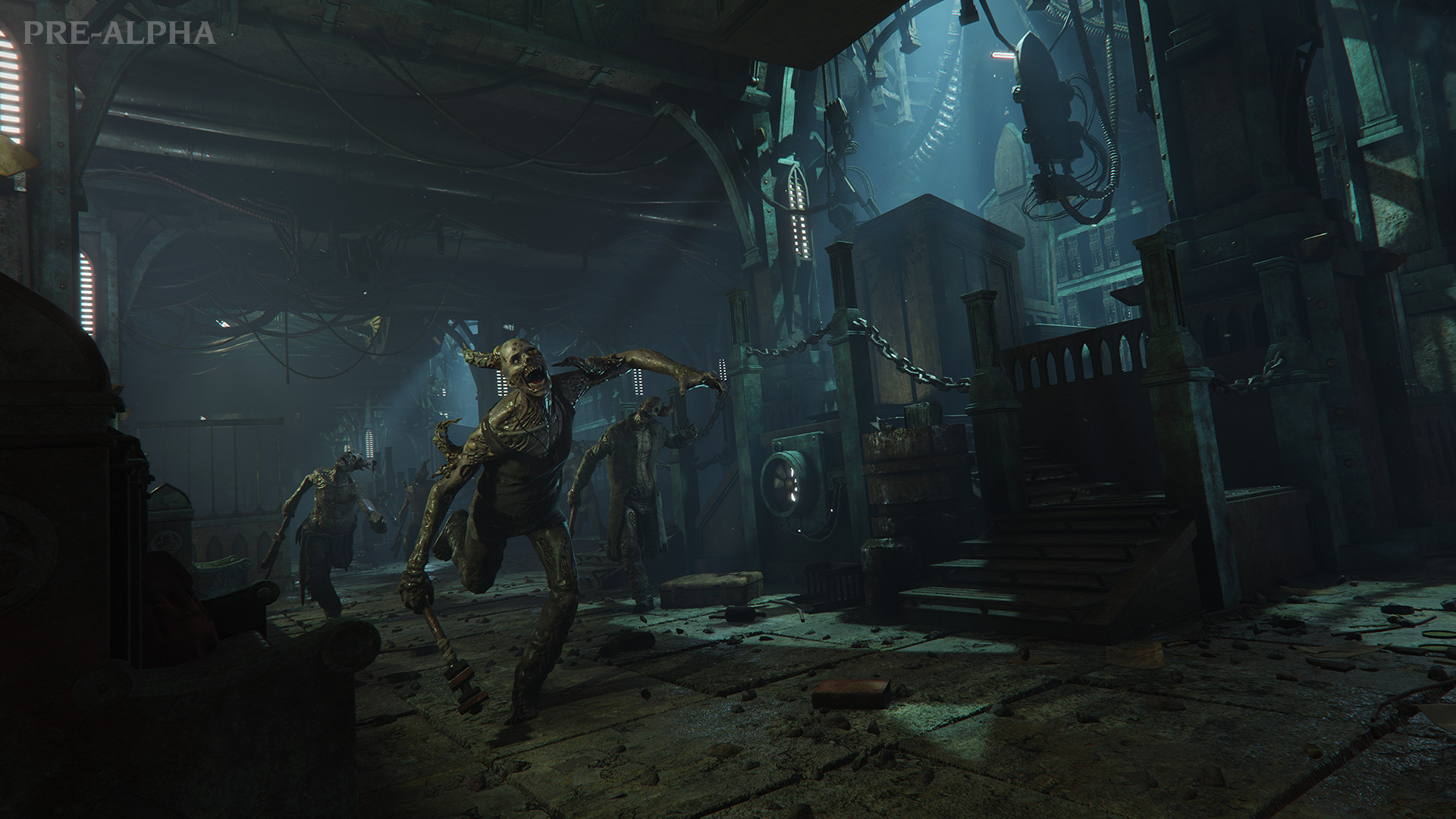
There are challenges to telling a story in a multiplayer game. As players we'll be approaching it piecemeal rather than in a predictable sequence, and we'll be together, chatting to each other while plot is happening. Fatshark has already dealt with this in the Vermintide games, of course, and understand how the balance works.
"It's first and foremost a co-op game," De Geer says, "and we still want to keep it as co-op friendly as possible. Like, we can't have mid-level cutscenes. Or we can't, the first time you play a level, have this specific dialogue, because it might be someone else's 100th run."
In the absence of mid-level cutscenes and expository dialogue, narrative is shifted to other places, like banter between the characters and environmental storytelling. "A lot of the storytelling is in the actual level," says De Geer. That creates an additional challenge, because those environments include the kind of ordinary places other 40K games haven't needed to visualize. "So apartments," he says by way of example, "there are a million items we need to represent. And just like in Vermintide, we take also great pride in trying to be as correct as humanly possible at Fatshark. It's so nice to be able to spam Dan with like, 'Do they use forks in 40K?'"
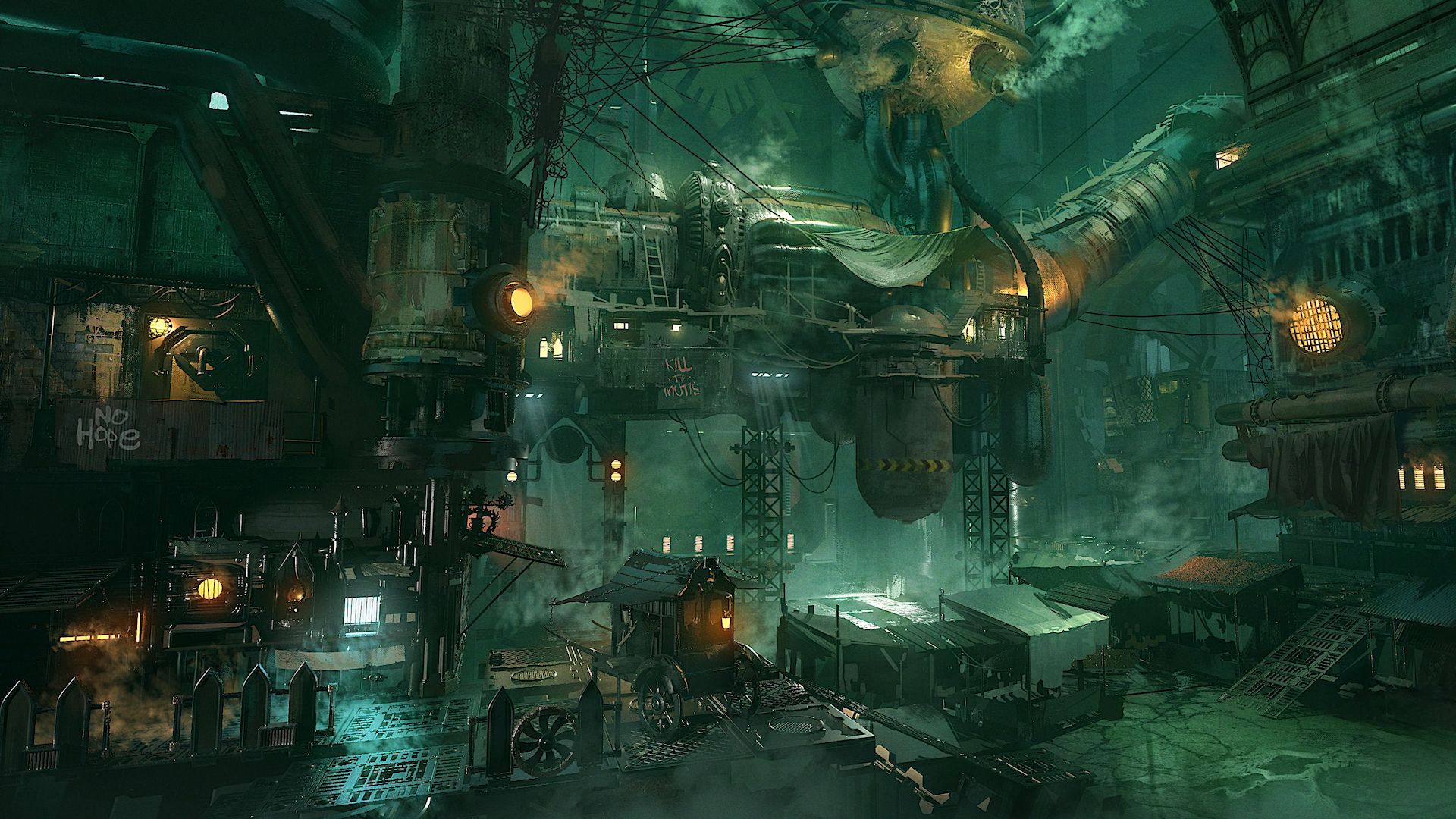
De Geer is used to the process of getting approval from Games Workshop. The team was particularly pleased to get approval for a Vermintide 2 cosmetic that gives the dwarf a double mohawk. "The double mohawk started as a joke in the team," De Geer says. "But there are actually double mohawk miniatures from like the early '90s. When we found the reference, it's much easier to have the conversation with GW."
Having an author who has written thirtysomething Warhammer 40,000 novels on hand made that process easier. Abnett began by writing a 30-page document about life in the 40K universe as a reference, but says it turned out to be nowhere close to extensive enough.
"Obviously if I'm writing a novel I take the reader by the hand and I lead them through the bits of the universe I want them to see. I can show them certain things in a great deal of detail, but I can also go, 'You don't need to look in there. We don't need to know how toilets work. We don't need to know what a bed looks like. Because it's not part of the story. over here, look at this important thing that's part of the plot.'"
Now that the question is in my head though, I can't get it out. Do they use forks? I mean, this is 40K. Maybe they use knives for everything, even eating peas, because that's just how hardcore they are. Or perhaps it's skulls? There's nothing characters in 40K won't turn into skulls, whether it's a breastplate or a door handle.
"They use forks," Abnett says.
Warhammer 40,000: Darktide will be released on Steam on September 13.

Jody's first computer was a Commodore 64, so he remembers having to use a code wheel to play Pool of Radiance. A former music journalist who interviewed everyone from Giorgio Moroder to Trent Reznor, Jody also co-hosted Australia's first radio show about videogames, Zed Games. He's written for Rock Paper Shotgun, The Big Issue, GamesRadar, Zam, Glixel, Five Out of Ten Magazine, and Playboy.com, whose cheques with the bunny logo made for fun conversations at the bank. Jody's first article for PC Gamer was about the audio of Alien Isolation, published in 2015, and since then he's written about why Silent Hill belongs on PC, why Recettear: An Item Shop's Tale is the best fantasy shopkeeper tycoon game, and how weird Lost Ark can get. Jody edited PC Gamer Indie from 2017 to 2018, and he eventually lived up to his promise to play every Warhammer videogame.

